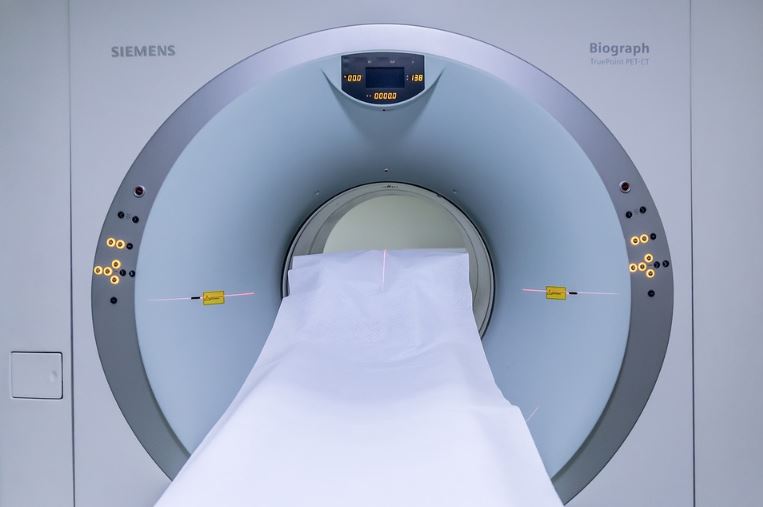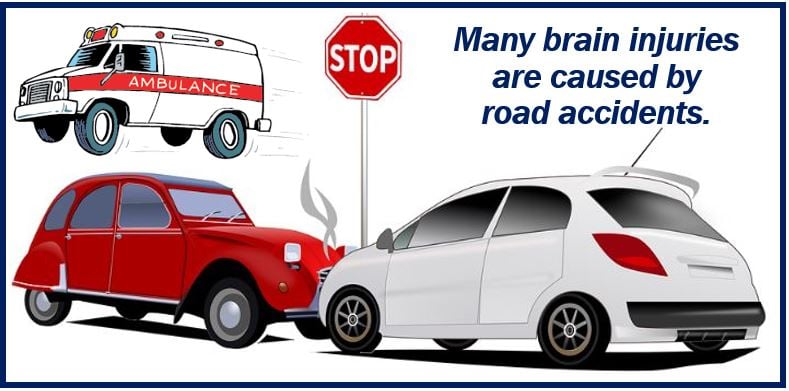 Sadly, one of the primary reasons for disability and death in the USA are brain injuries and disease. A brain injury can be of more than one type and is often due to a blow to the head. When anybody has been in, for example, a road accident, and a head injury is suspected, doctors will most likely order an MRI scan.
Sadly, one of the primary reasons for disability and death in the USA are brain injuries and disease. A brain injury can be of more than one type and is often due to a blow to the head. When anybody has been in, for example, a road accident, and a head injury is suspected, doctors will most likely order an MRI scan.
We’ve all heard the term MRI while listening to friends or watching TV programs. So, what exactly does it mean?
MRI stands for magnetic resonance imaging. It is a kind of scan that uses very strong radio waves and magnetic fields to produce extremely detailed images of the inner parts of the human body. The machine, an MRI scanner, consists of a large tube with extremely powerful magnets. Patients lie inside this tube while the scan is underway.
We can use MRI scans to examine virtually any part of the human body. Doctors use MRIs to help them diagnose patient’s conditions, i.e., to find out what’s wrong. MRIs also help them determine how effective a treatment regime has been.
Medical treatments are an essential part of everyone’s lives. No matter how rich or poor a person is, a visit to a doctor is a ubiquitous event. Advanced medical treatment is expensive to be precise, but no one should be deprived of medical attention when needed.
Unfortunately, in many parts of the world, where universal free healthcare does not exist, people have to think twice before going ahead with MRI scans and other expensive medical procedures.
 What are Brain Injuries?
What are Brain Injuries?
Brain injuries occur when brain cells are destroyed. According to the Centers for Disease Control and Prevention (CDC), 5.3 million people in the United States are living with a disability caused by a traumatic brain injury. These can be caused by, for example, trauma, tumors, stroke, or infections. Half of all people who suffer a traumatic brain injury do not survive.
Many brain injury survivors are unable to perform everyday activities without some kind of help. The National Stroke Association says that almost 1,500,000 people die from stroke every year.
There are two main types of brain injury:
Acquired Brain Injury (ABI)
This type occurs after birth. ABI may be caused by, for example, a stroke, near drowning, or tumor. Infectious diseases that affect the brain, such as meningitis, are also examples of ABI.
Traumatic Brain Injury (TBI)
This is an injury caused by head trauma. Trauma, in medicine, means injury. A serious blow to the head from a car crash is an example of head trauma. TBI may be caused by assaults, serious falls, road accidents, or accidents in the home or at work.
Put simply, TBIs are caused by trauma to the head rather than cancer or diseases, while ABIs are caused after birth.
Some Quick Facts
- The consequences of TBI depend on how serious they are and which part of the brain was damaged.
- TBI is a significant cause of death across the United States of America and the rest of the world.
- The most common causes of brain injuries are falling, sports-related injuries, and road accidents.
- The most typical initial signs and symptoms of brain damage include convulsions, confusion, memory loss, and continued headaches.
 Signs and Symptoms of Brain Injury
Signs and Symptoms of Brain Injury
A symptom is something the patient can feel, while a sign is something everybody else, such as doctors and nurses, can detect. A headache, for example, is a symptom while a rash or swelling is a sign.
The signs and symptoms of severe brain injuries can appear either within minutes or after several days. If any signs are detected or the person describes related symptoms, it is important to get medical help as soon as possible.
Some brain injury effects are physical and potentially devastating, while others are only psychological or behavioral.
In some cases, the brain may swell and push against the skull. If blood vessels get squashed, the patient’s brain might not get enough oxygen.
Signs and Symptoms of Internal Injuries
Apart from TBIs, internal injuries also pose significant problems. For example, bruises behind the ears, or damage in the eye area can later prove to be fatal problems. You should not ignore even the most apparently minor signs or symptoms.
Signs and Symptoms of ABIs
-
Fainting
If somebody faints and they recently experienced, for example, a blow to the head, you should get medical help immediately. Even if the doctor rules out brain injury, it is better to be safe.
-
Vomiting
Head trauma followed by frequent or even intermittent vomiting could be a sign of possible brain injury. A doctor needs to perform an MRI scan to determine whether the brain has been affected.
-
Numbness in Body Parts
If parts of your body feel numb, you should take this as a warning sign. Brain injury or damage can result in the misfiring of sensory nerves.
-
Coordination Problems
Maybe you had experienced an accident two years back or even earlier and you thought it was nothing serious except few a few bruises here and there. Recently, if you have encountered problems regarding memory loss or difficulties in coordination in day-to-day activities, you need immediate help.
-
Severe or Chronic Headache
We all get headaches now and again. However, severe or chronic headache is usually a warning sign. When something is chronic it means that it lasts for a long time. Chronic headaches may be caused by problems with the blood vessels around or in the brain, infections (meningitis), a brain tumor, intracranial pressure, or traumatic brain injury.
Anybody experiencing severe or chronic headache needs to see a doctor.
-
Mood Swings
Mood swings can be the result of several problems such as extreme stress or depression. Some women’s moods change during their menstrual cycle.
It is, however, different when you experience dramatic mood swings. Excessive levels of sadness and other unusual changes in behavior could be a sign of an underlying disease or condition. As brain injury can cause fluctuating moods, it is best to get it checked out by a health care professional.
-
Memory Loss
Memory problems are common among individuals with severe to moderate traumatic brain injury. It can damage parts of the brain that deal with memory and learning. If it is related to brain injury, short-term memory is typically affected more than long-term memory.
-
Dizziness and Sleep Disorders
If you notice somebody feeling dizzy after an accident or injury, they need to see a doctor. Falling asleep at odd times could also be a sign of something more serious.
If you experience any of these signs and symptoms after receiving a blow to the head, you should check with your doctor as soon as possible. In fact, it might be a good idea to seek medical help even if you haven’t experienced any head trauma.

